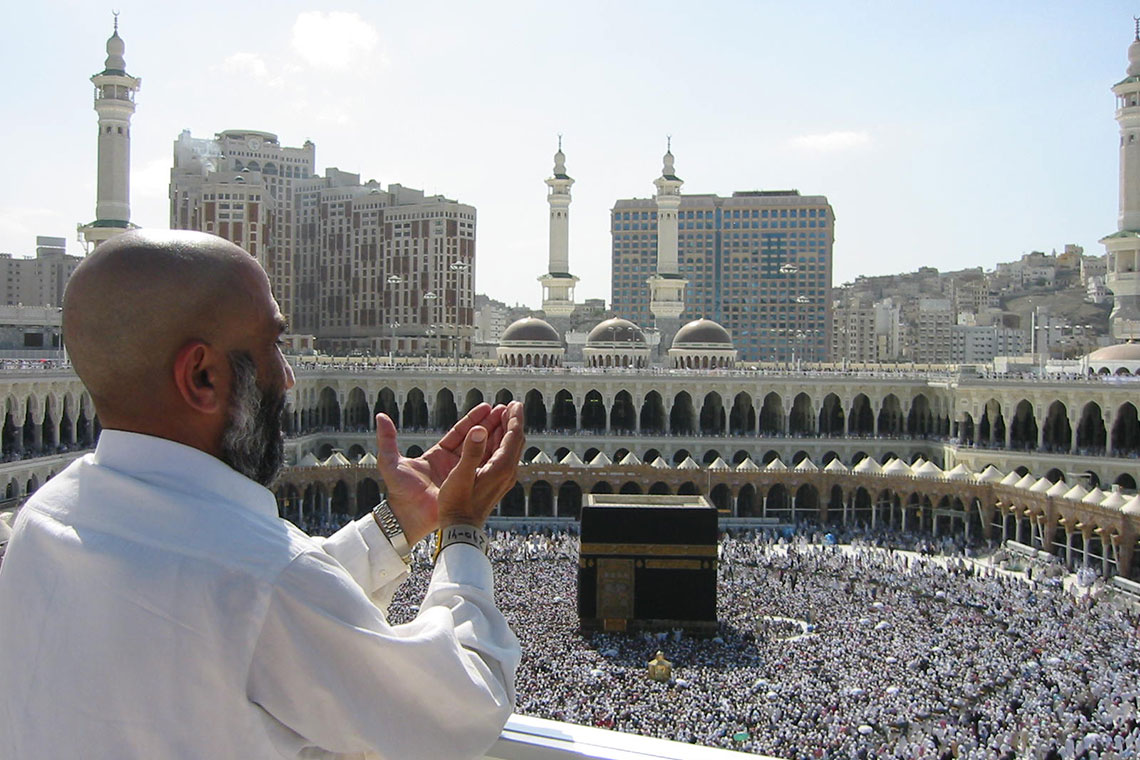Two months after the 9/11 attacks, many of the major Islamic scholars gathered in Denver for their annual meeting. Omid Safi, the director of the Duke Islamic Studies Center, was one of the conveners and he couldn’t help but notice how his colleagues looked “miserable and exhausted.”
For the previous eight weeks, they had repeatedly answered the same questions from the media: “Why do they hate us?” “Why is Islam so violent?”
So Safi offered to take his colleagues to dinner. It was not a major logistical challenge, since there were only 30 people among them.
These days, more than 800 Islamic scholars belong to that group, including 15 core faculty members at Duke teaching courses that relate to Islam, and the number continues to rise.
“At the time of 9/11, Harvard did not have a major scholar of Islam as a religious tradition, Stanford had no one researching Islam,” says Safi, sitting in his book-lined office in the John Hope Franklin Center. “I’m proud to say Duke did … but many of the other major universities were in the position of playing catch up.
“And how do you fill all of these positions? So we were put in the position of training Ph.D. students, sending them out into the market, and a little bit of musical chairs, of having people move from smaller schools to the more prestigious programs to fill” those openings.
Interest in Islam continues to grow among undergraduates, he says.
“The first place you see it is in languages,” Safi says. “Arabic in particular has become a distinguished, popular program of study, not just for heritage students but for lots and lots of college kids.”
Islamic-focused classes are also popular with public policy students, many of whom are considering working in politics or for the State Department or some other government agency.
“They’re coming at it with the lens of security being a dominant way that they tend to look at Islam. And that’s understandable,” he says.
Safi says part of his task is to make sure the students see the bigger picture: a thriving, 1,400-year-old civilization that embodies philosophy, science, poetry, music, architecture and learning.
“I want to be sure our students can make sense of the contested, tortured difficult world in which we find ourselves,” he says.

Being able to teach to this new reality has forced scholars like Safi to reinvent themselves.
“Before Sept. 11, the majority of scholars of Islam were trained in classical or Medieval Islam. They were expected to be incredible scholars of Arabic who had worked on the Quran or Islamic law … and, oh, by the way, being told that ‘we want you to teach something on the modern stuff.’ Think of it this way – you show up in America and you’re expected to make sense of America and the only two professors that you have are a Biblical expert and a professor of Shakespeare, and you go to them and ask them to comment on Donald Trump. That’s not so much unlike the situation that existed in Islamic studies.”
Safi views his work as multi-faceted: teaching undergrads about not only the chaos, but also the role that colonialism, nationalism, oil and other forces have played in the region; preparing Ph.D. students to possibly be the only Islamic professor on a campus; and continuing to engage with the media. “Otherwise, there’s a whole level of scholarly knowledge that’s not having an impact on the public discourse,” he says.
The workload, he says, is demanding, “but I do feel a particular sense of responsibility in this particular moment of crisis to speak up, to educate, to uplift, to transform using the one tool that we have, which is education.”